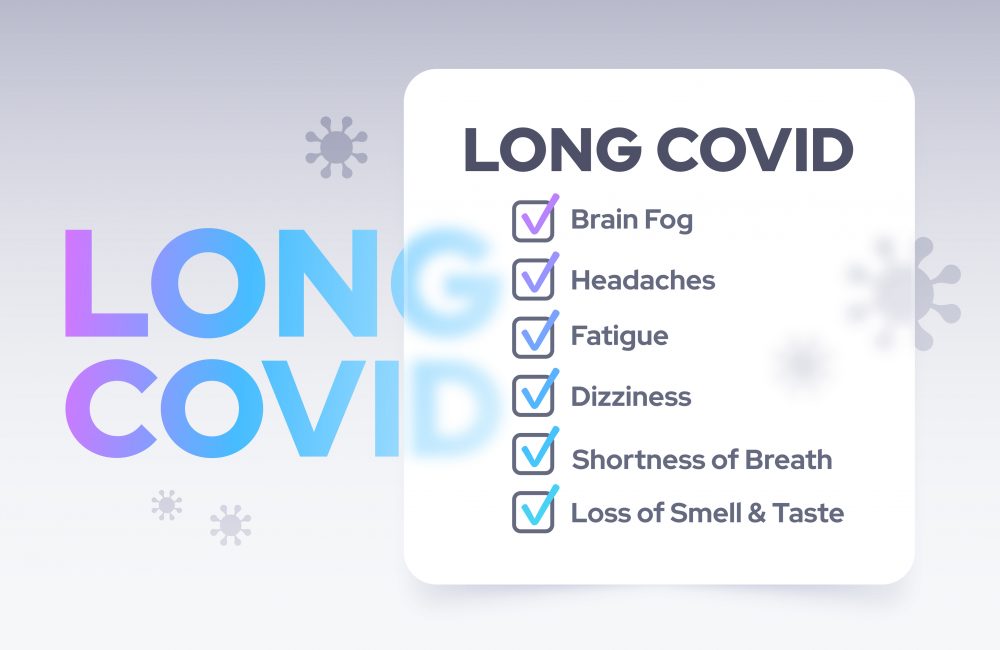
The Research Problem
A recent study that tracked symptoms before SAR-COV-2 infections and compared participants to controls indicated that 12.7% who have had COVID experience prolonged symptoms (long COVID) over many months (1). Long COVID can occur not only after a severe infection, but also after milder or asymptomatic infection. Indeed, approximately 30% of patients who had a mild COVID-19 infection and were not treated in hospital (WHO ‘progression scale’ 1-3; 2) recurred up to seven months later with persistent or late symptoms consistent with long COVID (3). The main symptoms relevant for physical (in)activity and dysregulated recovery stress state in long COVID are marked fatigue, acute exercise intolerance, and post exertional malaise (PEM) (4). These symptoms are often part of similar symptom profiles in individual post-acute infections syndromes as well as the overlap of clinical features with myalgic encephalomyelitis/chronic fatigue syndrome (ME/CFS; 4, 5). Symptom profiles with fatigue, exercise intolerance, and post PEM are a major therapeutic challenge for exercise and physical activity prescriptions. Therefore, the assessment of acute and ongoing recovery-stress state after exercise is necessary for individual management strategies and to avoid prolonged recovery times and ‘crashes’ that often occur in long COVID patients (athletes and non-athletes). The aim of the project is to develop and validate an international recovery-stress state inventory for post-acute infections syndromes (RSI-PAIs) based on long COVID and the established Acute Recovery and Stress Scale (ARSS; 6).
Research Design
The RSI-PAIs is based on the ARSS which was extended by the Fatigue Severity Scale (7) measuring fatigue considering the DePaul Symptom Questionnaire-Short Form Post Exertional Malaise for the assessment of frequency, severity, and duration of post exertional malaise (8) plus the assessment of long COVID symptoms.
Phase 1:
Survey with the German SRI-PAIs. The cross-sectional data collection included elite/sub-elite athletes and non-athletes as well as patients of a long COVID ambulance. [Data collection completed with 350 data sets]. Results confirmed validity of the German SRI-PAIs which has been translated to English.
Phase 2:
Survey with the English SRI-PAIs. Cross-sectional data collection for the validation included elite/sub-elite athletes and non-athletes. [Data collection ongoing]
Project Objectives
Developing therapeutic treatments for long COVID is a significant challenge. To achieve this, the evaluation of therapeutical approaches needs to be based on validated assessment tools. With the development of the SRI-PAIs, this project provides important groundwork that can be used for long COVID interventions in both athletes and non-athletes.
References
[1] Ballering, A.V. et al. (2022). https://doi.org/10.1016/S0140-6736(22)01214-4
[2] World Health Organization. (2020). https://www. who.int/groups/working-group-on-ethics-and-covid-19
[3] Augustin, M. et al. (2021). https://doi.org/10.1016/j.lanepe.2021.100122
[4] Haunhorst, S. et al. (2024). https://doi.org/: 10.1007/s15010-024-02386-8
[5] Choutka, J. et al. (2022). https://doi.org/10.1038/s41591-022-01810-6
[6] Kellmann, M. & Kölling, S. (2019). https://doi.org/10.4324/9780429423857
[7] Cotler, J. et al. (2018). https://doi.org/10.3390/diagnostics8030066
[8] Hjollund, N.H. et al. (2007). https://doi.org/10.1186/1477-7525-5-12